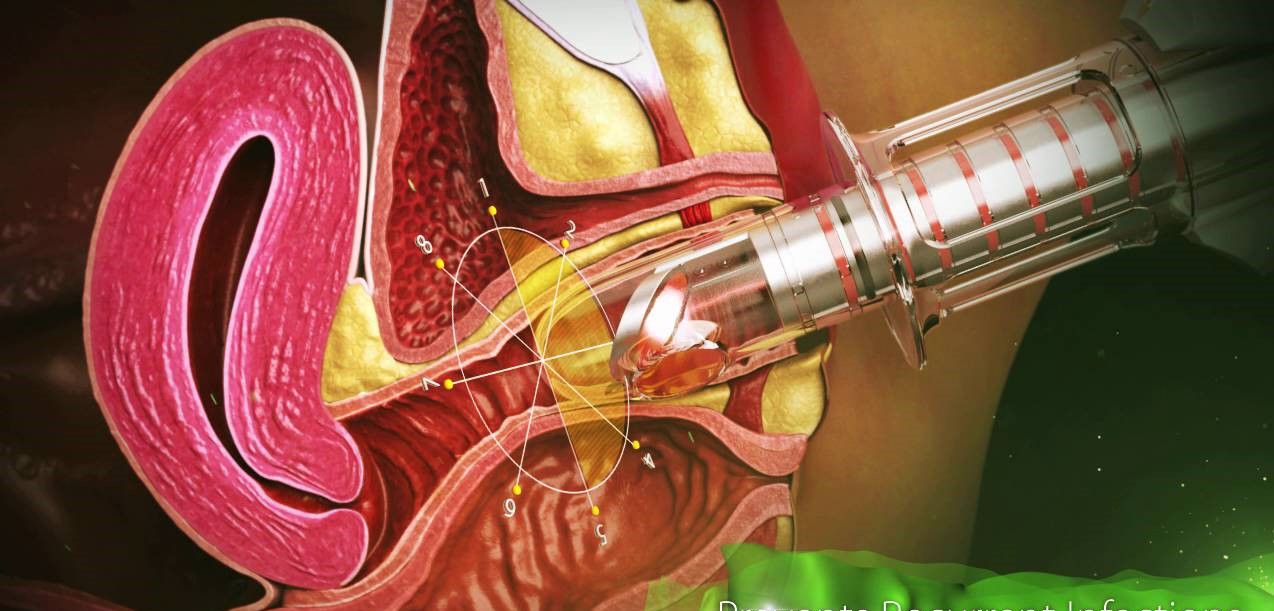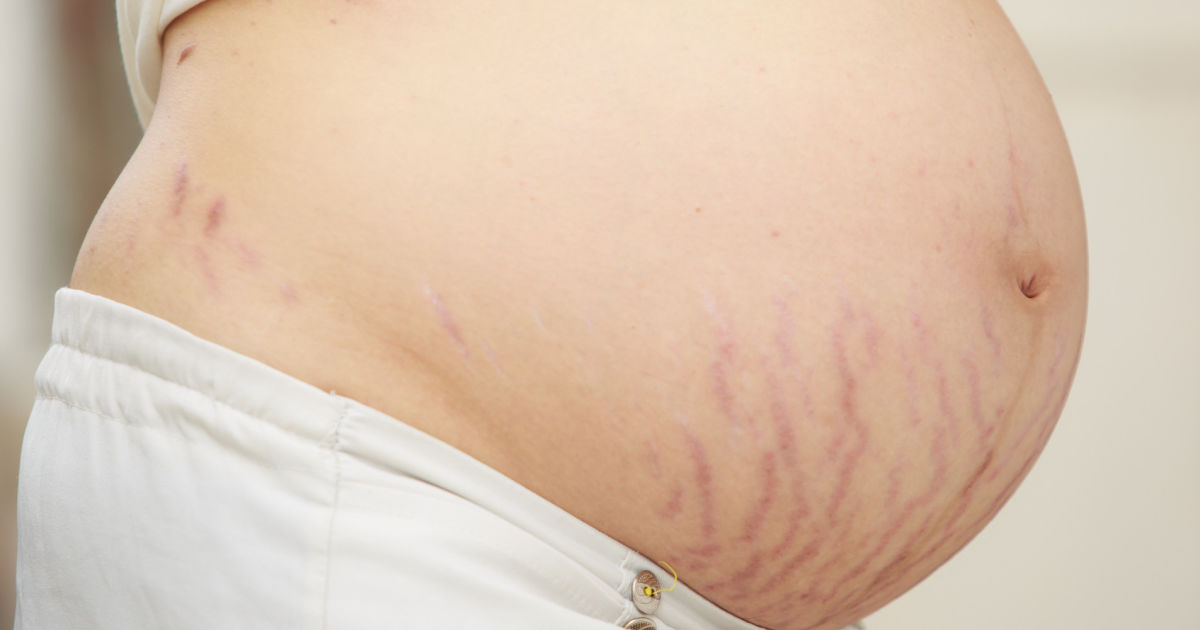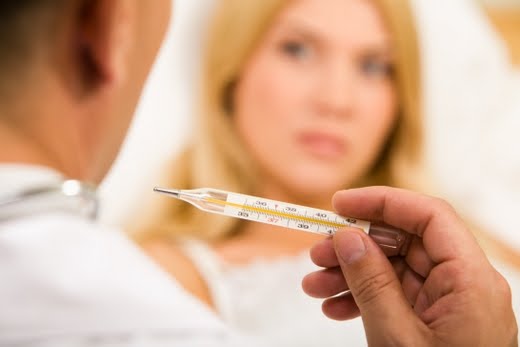Polycystic Ovary Syndrome
İçindekiler
What is Polycystic Ovary Syndrome?
“Polycystic Ovary Syndrome” (PCOS), which is one of the leading causes of ovulation problems in women, that is, the appearance of multiple cysts in the ovaries is a condition that is generally seen in women under the age of 30 with some hormonal irregularities, the cause of which is unknown. Although genetic characteristics inherited from one’s family are among the most frequently blamed causes, eating habits, inactivity and stress are also among the triggering factors.
 What are the Causes of Polycystic Ovary?
What are the Causes of Polycystic Ovary?
In a woman who has a regular menstrual cycle, a mature egg develops from the ovaries, ready to be fertilized during each menstrual period. This egg completes its development, cracks and when it meets the sperm, it is fertilized and pregnancy occurs. In Polycystic Ovary Syndrome (PCOS), many eggs try to mature at the same time and fail. After all, there are many eggs, but none of them are capable of developing and fertilizing. In the ultrasound image, these eggs are seen in the form of more than one fluid-filled sac, that is, cysts. Polycyst means a large number of cysts.
In PCOS, patients apply to the doctor with complaints such as irregular menstruation or lack of menstruation, acne, oily skin, excessive hair growth, overweight or inability to become pregnant. On the basis of all these problems lies the problem of ovulation due to hormonal irregularities.
Menstrual irregularity is seen in 75% of patients. The most common complaint is infrequent menstruation. The menstrual cycle in a normal woman is 21-35 days. In PCOS, menstrual cycles (4-8 times a year) are usually observed at intervals longer than 35 days.
What Are the Symptoms of Polycystic Ovary Syndrome?
An increase in male hormone is seen in half of the patients. Hair growth is most common on the lower jaw, upper lip, chest, belly button and inner legs. In severe cases, hair growth can also be seen on the back, arms and legs. Rarely, male pattern hair loss and body development are seen.
Infertility due to ovulation problem is common in women with PCOS, the risk of miscarriage is increased in pregnant women, growth retardation can be seen in the baby, the risks due to diabetes and high blood pressure increase.
Obesity is seen in one third of these patients. As the waist-to-hip ratio increased, the risk of high blood pressure and cardiovascular disease increased. Insulin-dependent resistance arises due to overweight and the tendency for diabetes mellitus increases.
The risk of developing uterine cancer due to high estrogen levels that cannot be met by progesterone is another health problem.
In one third of the patients, there is no complaint, and the diagnosis is made during the examinations and tests.
The basis of the disease lies in the abnormal secretion of FSH and LH hormones secreted from the pituitary gland. As a result of this imbalance, ovulation, which should be regular every month, is disrupted. The increase in LH increases the production of male hormones, the secreted male hormones (androgens) turn into estrogen in the adipose tissue, and this increase increases the production of LH hormone, that is, a complete vicious cycle occurs. This chain can be broken by losing weight, suppressing or stimulating the ovaries.
The relationship between polycystic ovary syndrome and insulin hormone is as follows. Insulin is a hormone released from the pancreas and enables cells to use sugar, or glucose. In PCOS, there is resistance to insulin in the cells, and the pancreas secretes more insulin to cope with this condition. Insulin contributes to the disease by increasing the blood LH level. Such high insulin levels prevent ovulation, and there is an increase in androgens.
In addition, the hormone Prolactin, which is released from the pituitary gland and stimulates milk production in the breasts, is increased in these patients.
Hormonal changes that can be seen in Polycystic Ovary Syndrome:
- LH/FSH ratio increases,
- Androstenedione increases,
- SHBG (sex hormone binding globulin) decreases
- DHEA and DHEASO4 increase,
- Testosterone increases
- Estrogen increases
- Prolactin rises
Insulin resistance is impaired. However, changes in these hormones do not necessarily have to occur.
In the examination of patients with PCOS by ultrasonography, it is seen that 10-20 cysts with a diameter of 2-10 mm in the ovaries are arranged in the form of a necklace. However, diagnosis should not be made only by ultrasound imaging, because 8-25% of normal women have polycysts in their ovaries and they do not have complaints such as menstrual irregularity, hair growth and infertility. This should not be confused with true PCOS.
What Causes Polycystic Ovary Syndrome?
The exact cause of PCOS is unknown. Factors that may play a role include:
Excess insulin : Insulin is a hormone produced in the pancreas that allows cells to use sugar, which is their primary energy source. If your cells become resistant to insulin, your blood sugar rises and the body produces more insulin to compensate. Excess insulin increases androgen production and ovulation is inhibited.
Genetics: Research suggests that certain genes may be linked to PCOS.
Excess androgen : The ovaries produce abnormally high levels of androgens, resulting in hirsutism and acne.
What Causes Polycystic Ovary Syndrome?
Infertility
High blood pressure caused by gestational diabetes or pregnancy
miscarriage or premature birth
Fatty liver and liver infection
Metabolic syndrome: a set of conditions that include high blood pressure, high blood sugar, and abnormal cholesterol or triglyceride levels, which significantly increases your risk of cardiovascular disease
Type 2 diabetes or prediabetes
Sleep apnea
Depression, anxiety and eating disorders
abnormal uterine bleeding
Uterine Cancer (Endometrial Cancer)
Obesity is associated with PCOS and can worsen complications.
Polycystic Ovary Syndrome Treatment
First of all, patients should be ensured to reach their ideal weight. Weight loss in PCOS alone provides relief in most of the present complaints. Insulin and androgen levels decrease in patients who lose 5% of their weight. With increasing daily activity and a stable diet program, satisfactory results are obtained.
In the treatment of PCOS, drugs used in the treatment of diabetes, such as Metformin, are especially beneficial in patients with problems in insulin metabolism. Metformin reduces glucose output from the liver, thereby lowering fasting plasma glucose, as well as increasing insulin resistance of tissues. As a result of using this drug for an average of 2 months, high blood insulin levels, increased insulin resistance and high androgen hormones that cause excessive hair growth improve.
If there is no desire to get pregnant, birth control pills can be used to regulate menstruation. These pills provide an improvement in hormones, complaints of hair growth, weight and oily skin are improved.
The aim of the treatment of excessive hair growth is to suppress the male hormone. However, this treatment cannot destroy existing hair, it only reduces the growth of new hair. For this reason, needle or laser epilation should be applied together. It is a long-term treatment, it may take 8-18 months to be successful.
Successful results are obtained with the treatment given under the supervision of an experienced specialist to ensure egg development in patients who want pregnancy. Pregnancy is tried to be created by the method of vaccination from the developing eggs. If pregnancy is not achieved with follow-up and vaccination performed 3 times, it is recommended to switch to in vitro fertilization method.
Another method used in treatment is “Laparoscopic Diathermy”. Here, the abdominal cavity is entered with laparoscopy and cautery or laser is applied to the cysts on the eggs. Although the mechanism of the treatment is unknown, it has been observed that the treatment given increases the chance of success and regulates ovulation.
Jin.Op.Dr. Yeşim Yercok
Gynecology Obstetrics and IVF specialist
The contact information of Jin.Op.Dr.Yeşim Yerçok for the Treatment of Polycystic Ovary Syndrome is below:
Appointment Tel: 0216-3851715
Address: Fener Kalamış cad. Billur apt. No: 5 Da: 9 Fenerbahçe-Kızıltoprak/ İstanbul
E-Mail: info@dryesimyercok.com











